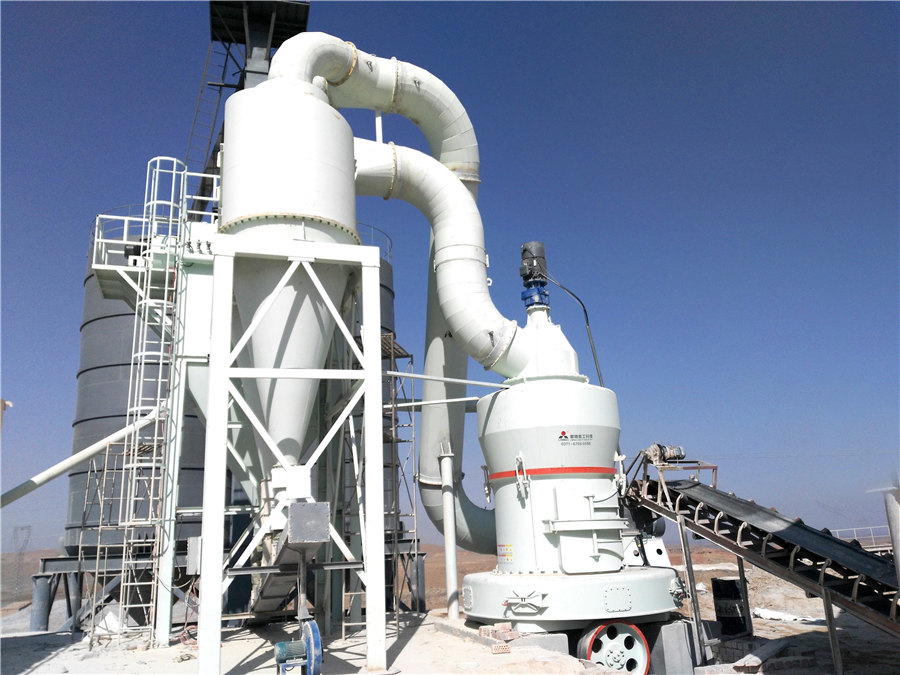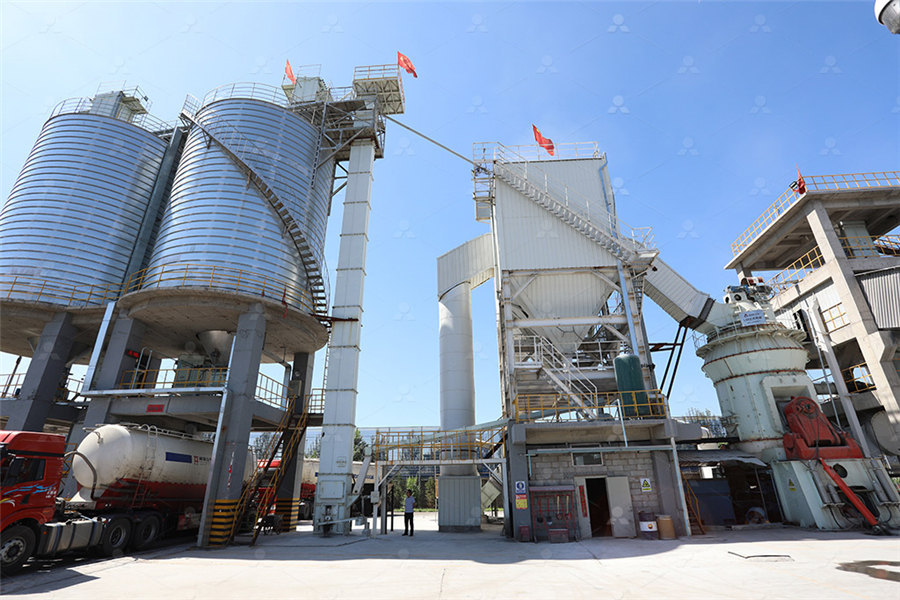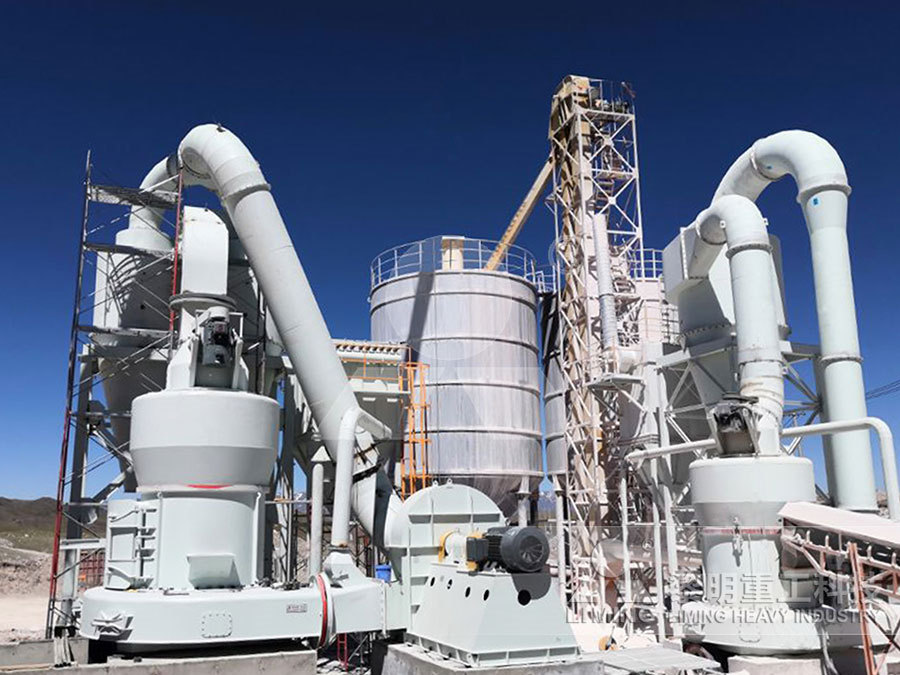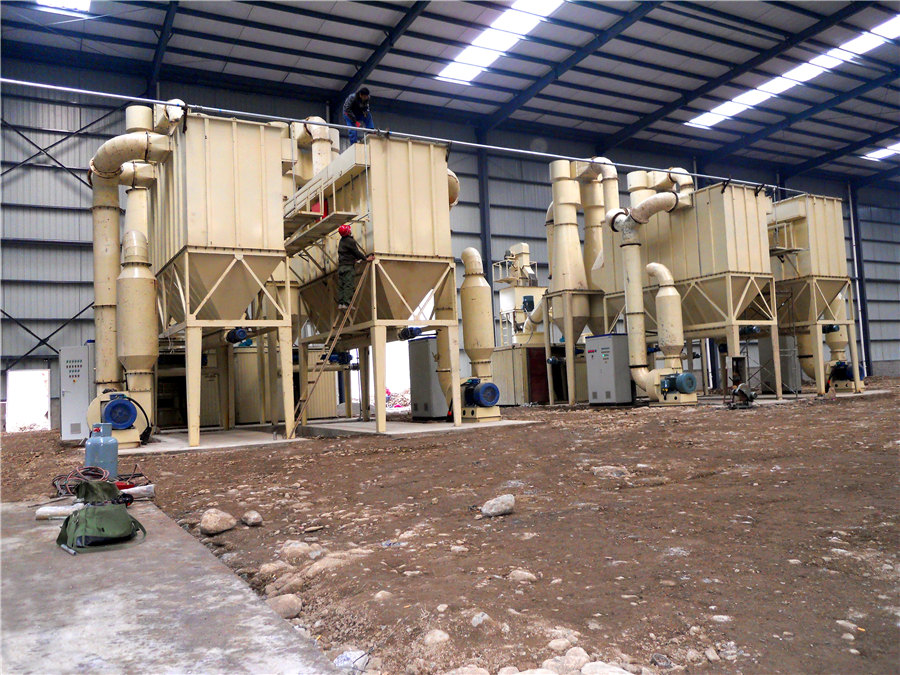
What ore powder is antimony slag ground from
.jpg)
Antimony Recovery from EndofLife Products and Industrial
2016年2月8日 Intermediate grade ores (25–40 % Sb), and Sbrich residues, slags, mattes, and flue dusts are smelted in a blast furnace at 1300–1400 °C which produces antimony metal, SO 2 gas, and a slag Sbrich ores (45–60 % Sb) can be treated by liquation and iron precipitationAntimony oxide was precipitated from the PLS via the hydrolysis process The product composed of 8143% Sb, 1623% O, and 234% Fe This study aimed to investigate the recovery of Production of highgrade antimony oxide from smelter slag via 2021年12月10日 This paper reports a complete characterization of three typical Sbcontaining metallurgical residues, namely crude antimony trioxide, lead softening slag, and antimony Characterization of antimonycontaining metallurgical residues for 2019年2月20日 Therefore, antimony trioxide (Sb 2 O 3 ) is now the most important product among antimony compounds In nature, antimony usually exists in the form of sulfide ore or sulfosalt with copper,(PDF) Antimony Production and Commodites

Antimony, a pollutant of emerging concern: A review on industrial
2021年8月1日 Antimony is produced through pyrometallurgical or hydrometallurgical routes In pyrometallurgy, three different methodologies, according to the ore grade (ie, antimony 2022年8月12日 Antimony is classified as a critical/strategic metal Its primary production is predominated by China via pyrometallurgical routes such as volatilization roasting—reduction smelting or directA Review on Pyrometallurgical Extraction of Antimony 2023年6月7日 The powdery crude antimony trioxide is reduced by a carbonaceous reductant in a reverberatory furnace at 1,000–1,200 °C to produce crude antimony Crude antimony can be Antimony Metallurgy SpringerLink2023年9月20日 Antimony resources are dominated by antimony sulfide ore, accounting for 85% of the total antimony resources The main minerals of antimony sulfide ore are stibnite (Sb 2 S 3) and lead antimony sulfide ore (Pb Present Situation and Research Progress of

(PDF) Present Situation and Research Progress of
2023年9月20日 The comprehensive utilization of antimony tailings is mainly recovering metals by beneficiation and metallurgy and using antimony tailings as building materials and underground filling2022年11月21日 It can be made in two approaches: by oxidizing antimony steel and revolatilizing crude ATO Antimony metal oxidation, in the EU, is prevalent Several methods exist for creating metallic antimony or crude ATO from raw materials The ore’s structure and other factors influence the process choiceWhat Is Antimony Trioxide? OUSHI Metal2015年4月15日 The extraction of antimony from lowgrade stibnite in eutectic Na 2 CO 3 –NaCl molten salt using ZnO as a sulphurfixed agent was studied The results of the experiments on the reaction mechanism indicate that the reaction courses of antimony and sulphur were Sb 2 S 3 →Sb 2 O 3 →Sb and Sb 2 S 3 →ZnS Sulphur was fixed in the form of ZnS, while molten salt Onestep extraction of antimony from lowgrade stibnite in 2021年8月1日 Antimony comes under group 15 of the periodic table with ground state electronic configuration [Kr]4d 10 5s 2 5p 3 121 Sb (5721% abundance) and 123 Sb (427% abundance) are the two stable isotopes of antimony Antimony can possess different oxidation states (such as +5, +3, 0, −3 and −5), but generally found to exist in the +3 and + 5 oxidations states (Herath Antimony, a pollutant of emerging concern: A review on industrial

Efficient removal and recovery of lead from high arsenic antimony
2024年11月1日 HNO 3 is a strong oxidizing agent for extracting Pb from secondary resources such as crystal glass waste (Mutafela et al, 2021), leadbearing solder dross (Ichlas et al, 2020), and waste printed circuit boards (Lee et al, 2003)(Ling et al, 2023) first removed As through pretreatment, followed by the use of HNO 3 for the removal of Pb from the waterleaching Metal ores contain sufficient minerals with important elements including metals that can be economically extracted from the rock The ores must be processed to extract the metals of interest from the waste rock and from the ore minerals Alloys are mixtures of materials, at least one of which is a metal Bronze alloys were widely used in weapons123: Metals and Ores Chemistry LibreTextsSamples of "ground granulated blast furnace slag" (left) and "granulated blast furnace slag" (right) Ground granulated blastfurnace slag (GGBS or GGBFS) is obtained by quenching molten iron slag (a byproduct of iron and steelmaking) from a blast furnace in water or steam, to produce a glassy, granular product that is then dried and ground into a fine powderGround granulated blastfurnace slag Wikipedia2016年2月29日 Although slag production weight is variable, a typical operation can generate 10 kilos of slag per 1000 oz of gold The precipitate obtained in the MerrillCrowe process is very sensitive during the smelting process due to the process employ diatomaceous earth as a Gold Smelting Refining Process 911Metallurgist
.jpg)
Leaching Kinetics of Antimony from Refractory Gold Ore in
2020年12月1日 The contents of antimony in samples were determined by inductively coupled plasma optical emission spectrometer (ICPOES) The microstructure of the samples was characterized using scanning electron microscope (VEGA3, TESCAN) The filter residue was dried and ground to powder The powder was spread on the conductive adhesive of the 2022年2月4日 The Sb recovery from industrial residues has attracted more and more attention in recent years due to the increasing scarcity and criticality of Sb [1, 2]Sbcontaining industrial residues can be processed by carbothermic reduction to produce antimony metal or by evaporation to produce antimony trioxide (ATO) [3, 4]The latter is more attractive because Evaporation of Antimony Trioxide from Antimony Slag by 2014年10月20日 Abstract During the processing of antimony ore by pyrometallurgical methods, a considerable amount of slag is formed This antimony waste slag is listed by the European Union as absolutely hazardous waste with a European Waste Catalogue code of 10 08 08Full article: Immobilization of antimony waste slag by applying 2024年3月28日 Antimony is often used as a hardener for alloys There are few studies on the preparation of antimony from Sb2O3 by microwave carbothermal reduction In this study, Sb2O3 was used as the raw material, and the resonant cavity perturbation method was used to select anthracite as the reducing agent according to the microwave absorption of the material Preparation of Antimony Metal by Carbothermal Reduction of Antimony

Why Is Antimony the Most Important Mineral?
2023年4月20日 The high demand for antimony trioxide in fire safety and plastic production catalyzes the global antimony market Antimony trioxide is preferred to zinc borates and zinc stannates alternatives Additionally, the demand for 2014年11月1日 During the processing of antimony ore by pyrometallurgical methods, a considerable amount of slag is formed This antimony waste slag is listed by the European Union as absolutely hazardous waste Immobilization of antimony waste slag by applying2020年1月25日 Antimony smelting slag is produced from blast furnace during antimony oxides reduction The slag composition of such antimony smelting slag is FeO–SiO 2 –CaO, and Pb, Zn, and Sb in slag appears as complicated oxides In the antimony smelting slag, part of Pb exists in the form of PbSThe Recovery of Pb and Zn in Antimony Smelting SlagThe extraction of antimony from ores depends on the quality and composition of the ore Most antimony is mined as the sulfide; lowergrade ores are concentrated by froth flotation, The powder derived from crushed antimony sulfide has been used for millennia as an eye cosmeticAntimony Wikipedia
.jpg)
Reduction of antimony mobility from Sbrich smelting slag by
2022年3月15日 To study the antimony mobilization and transformation released from smelting slag mediated by S oneidensis, two treatments were set up: (1) Biotic group: S oneidensis incubated in 200 mL sterilized LB medium with 20 g Sbrich smelting slag; (2) Abiotic group: control experiment was set as 20 g Sbrich smelting slag in 200 mL sterilized LB medium Groundgranulated blastfurnace slag (GGBFS) is produced by quenching molten iron slag (a byproduct of iron and steelmaking) from a blast furnace in water, to produce a granular product that is then dried and ground into a fine powderSlag Cement AustraliaThe remaining 10% comes from other countries [21], shown in Figure 2, and given in Table 5 rocesses 2022, 10, x FOR PEER REVIEW 5 of 38 produce ~3000 tonnes/year of antimony in the late '70s Main producers of antimony in the world ResearchGate2024年3月20日 The flotation process starts with grinding the ore into a fine powder The ground ore is mixed with water and chemicals known as collectors, which selectively attach to the antimony minerals Frothers are also added to create a Antimony Processing: Unlocking the Potential of a Versatile Element
.jpg)
Immobilization of antimony waste slag by applying
methods, a considerable amount of slag containing antimony and other impurities is formed in the equipment such as the shaft furnace, rotary kiln, converter, or reverberatory furnace According to the antimony production companies, 1 ton of antimony production results in the generation of approximately 45–5 tons of waste slag2021年3月31日 DOI: 101021/ACSSUSCHEMENG0C09073 Corpus ID: ; Antimony Recovery from LeadRich Dross of Lead Smelter and Conversion into Antimony Oxide Chloride (Sb4O5Cl2) @article{Palden2021AntimonyRF, title={Antimony Recovery from LeadRich Dross of Lead Smelter and Conversion into Antimony Oxide Chloride (Sb4O5Cl2)}, author={Thupten [PDF] Antimony Recovery from LeadRich Dross of Lead Smelter 2022年10月11日 ABSTRACT The global reserve of antimony is gradually declining while its demand continuously grows, rendering antimony an increasingly scarce metal Antimony has been highlighted as a critical raw material in the EU owing to its economic significance and high supply risk Due to the dispersed uses and low antimony concentration of the main antimony A review of the technologies for antimony recovery from refractory ores This slag is periodically tapped off as a molten liquid and if it is to be used for the manufacture of GGBS it has to be rapidly quenched in large volumes of water The quenching optimises the cementitious properties and produces granules What is GGBS? CSMA The Cementitious Slag

(PDF) Present Situation and Research Progress of Comprehensive
2023年9月20日 The production process of antimony produces a large amount of solid waste, such as waste rock in mining, tailings in the beneficiation, metallurgical slag in the smelting, and so on2021年5月6日 No, really, it could have Antimony is a strategic critical mineral that is used in all manner of military applications, including the manufacture of armor piercing bullets, night vision goggles Antimony: The Most Important Mineral You Never Heard Of2022年10月11日 Using this treated antimony oxide powder in the traditional antimony smelting process, the formation of arsenicalkali residue and antimony loss can be decreased to a great extent View Show abstractA review of the technologies for antimony recovery from refractory ores 2013年12月27日 Majority of antimonybearing ore deposits are associated with the subductionrelated western Pacific plate boundaries, especially in east and southeast Asia The highest antimony concentrations commonly occur in lowtemperature magmatichydrothermal systems in the epithermal environmentAntimony Critical Metals Handbook Wiley Online Library
.jpg)
GST Rate HSN Code for Ores, slag and ash Chapter 26
Note: The aforementioned rates are updated up to the Government GST (Rate) Notification GST (Rate) notification no 05/2020 dated 16th October 2020, to the best of our knowledge The information related to HSN codes is obtained from the master codes circulated on the NIC's GST eInvoice system Although we make every possible effort to ensure the information provided Carbon dioxide sequestration using steel slag—modeling and experimental investigation Smitha Gopinath, Anurag Mehra, in Carbon Dioxide Sequestration in Cementitious Construction Materials, 2018 41 Introduction Steel slag is an industrial waste that is generated during the production of steel In the production of steel, oxides of metal impurities in the iron combine Steel Slag an overview ScienceDirect Topics2022年11月28日 Combining potassium and antimony trisulfide brings about ignition; however, antimony trisulfide does not contain explosive properties but is used as a chemical reagent Antimony trisulphide is also applied in the production of military ammunition Vulcanizing agent Antimony trisulphide can also be applied in the rubber industry for vulcanizationWhat Is Antimony Trisulfide Used For? OUSHI MetalAntimony is primarily found in its sulfide form (stibnite), but it can also occur as an oxide or in combination with other metals Geology of Antimony Occurrence Antimony occurs naturally in over 100 different mineral species, though its Antimony ‣ GEOLOGY HUB
.jpg)
Antimony Metallurgy SpringerLink
2023年6月7日 Antimony metallurgy is the technology that extracts antimony metal from antimony ores or produces antimony compounds Antimony was discovered in the ancient time, and its name was derived from antimonite In 1604, a process was invented to extract antimony and antimony sulfide as described by B Valentine of GermanySlag processing George C Wang, in The Utilization of Slag in Civil Infrastructure Construction, 2016 53 Blast furnace slag processing Iron blast furnace slag results from the fusion of iron ore, fluxing materials, and coke; the reduction reactions; and the separation of iron from the ore As indicated in Chapter 2, the term blast furnace slag is used often to refer to iron blast furnace Blast Furnace Slag an overview ScienceDirect TopicsAntimony powder IMDG ANTIMONY POWDER, MARINE POLLUTANT IATA ANTIMONY POWDER Transport hazard class(es) DOT Class 61 Toxic substances Label 61 Class 61 (T5) Toxic substances Label 61 IMDG Class 61 Toxic substances Label 61 IATA Class 61 Toxic substances Label 61 Packing group DOT, IMDG, IATA III Environmental hazards:Antimony Powder American Elements2022年1月1日 Antimony (Sb) is one of the most commonly used metallic element, with global reserve of 19 million tons According to recent report, almost 80% of Sb production was concentrated in China, Russia, and Bolivia (United States Geological Survey, 2021)By 2020, China was the leading producer of Sb worldwide, accounting for nearly 80,000 metric tons, Antimony contamination and its risk management in complex environmental
.jpg)
Antimony Definition, Symbol, Uses, Facts Britannica
4 天之前 Antimony, a metallic element belonging to the nitrogen group (Group 15 [Va] of the periodic table) Antimony exists in many allotropic forms It is a lustrous silvery bluish white solid that is very brittle and has a flaky texture It occurs chiefly as the gray sulfide mineral stibnite2017年7月1日 Disclaimer:Rates given above are updated up to the GST (Rate) notification no 05/2020 dated 16th October 2020 to the best of our informationWe have sourced the HSN code information from the master codes published on the NIC's GST eInvoice system There may be variations due to updates by the government Kindly note that we are not responsible for any GST Rate HSN Code for Ores, slag and ash Chapter26Ores contain, in all cases, a much higher concentration of the metal than the average concentration of that metal in the earth’s crust Geochemists have estimated the crustal abundance of the elements by: (1) calculating, from chemical analyses in the literature, the average composition of each of the major types of rock in the crust and (2) multiplying these From Ores to Metals SpringerLink2023年11月30日 Ground Granulated Blastfurnace Slag (GGBFS) powder is a fine white powder used in concrete Slag is produced in iron and steel manufacturing process as a byproduct Molten slag is extracted from iron ore at elevated temperature (approximately around 1 500ºC) and rapidly water quenched to obtain reactive granular slag particlesGround Granulated Blastfurnace Slag EPD Australasia

Present Situation and Research Progress of Comprehensive
2023年9月20日 The production process of antimony produces a large amount of solid waste, such as waste rock in mining, tailings in the beneficiation, metallurgical slag in the smelting, and so on At present, most of these solid wastes are currently in storage, and the storage of a large amount of solid wastes is not only harmful to the local ecological environment but also a waste













